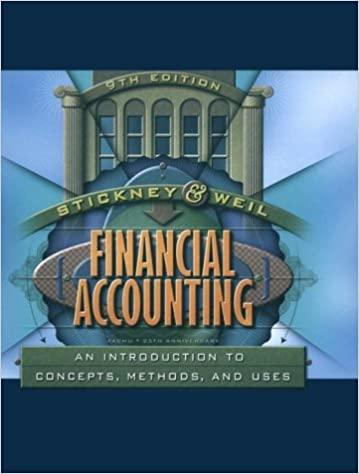Effect of transactions on the statement of cash flows. (Requires coverage of Appendix 1 1.3.) Refer to
Question:
Effect of transactions on the statement of cash flows. (Requires coverage of Appendix 1 1.3.) Refer to the simplified statement of cash flows in Exhibit 4.16. Numbers appear on nine of the lines in the statement. Ignore the unnumbered lines in considering the transactions below. Assume that the accounting cycle is complete for the period and that the firm has prepared all of its financial statements. It then discovers that it has overlooked a transaction. It records the transaction in the accounts and corrects all of the financial statements. For each of the following transactions or events, indicate which of the numbered lines of the statement of cash flows change and the amounts and directions of the changes (increase or decrease). Ignore income tax effects.
a. A firm purchased marketable securities costing $59,700 during the period. The firm classifies these as Securities Available for Sale.
b. A firm sold for $47,900 marketable securities available for sale originally costing
$42,200 and with a book value of $44,000 at the time of sale.
c. A firm sold for $18,700 marketable securities available for sale originally costing
$25,100 and with a book value of $19,600 at the tiine of sale.
d. A particular marketable equity security purchased during the period for $220,500 had a market value of $201 ,500 at the end of the accounting period. The firm classifies the security as a Security Available for Sale. The firm has already recorded the purchase.
e. Assume the same information as in part d except that the market value of the security at the end of the accounting period is $226,900.
f. The firm receives a dividend of $7,000 on shares held as an investment available for sale and accounted for using the market value method.
g. The firm writes down, from $10,000 to $8,000, securities available for sale accounted for with the market value method.
h. A 4()-percent-owned affiliate accounted for using the equity method earns
$25,000 and pays dividends of $10,000.
i. A 40-percent-owned affiliate accounted for using the equity method reports a loss for the year of $12,500.
j. The firm amortizes $2,000 of the excess of the purchase price over the book value of the underlying net assets in a 40-percent-owned affiliate.
Step by Step Answer:

Financial Accounting An Introduction To Concepts Methods And Uses
ISBN: 9780030259623
9th Edition
Authors: Clyde P. Stickney, Roman L. Weil





